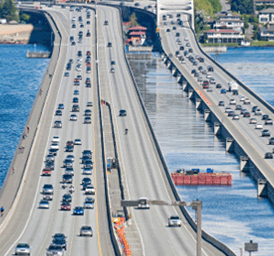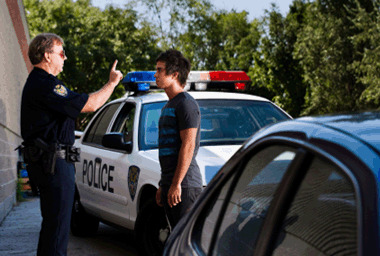Oct 27

How Seattle And Other Cities Live Off Speeding Tickets
Freelance correspondent Karen Aho had a very interesting article last week about a small town in Missouri that collected more than 75 percent of its annual budget from traffic fines. Unlike in the State of Washington, in Missouri, traffic ticket collections are capped at 35 percent of a town’s revenue. In Washington, however, police officers from Seattle and Everett and deputy sheriffs and state troopers from King County and other places such as Lewis County and Thurston County patrol state roadways looking to bring in money for their respective municipal, county, and state governments, without any limitation.
In her article on insurance.com, Aho discovered a 2006 study by the Federal Reserve Bank of St. Louis that found that the number of tickets issued in municipalities increased on average by 0.4 percent for every 1 percent decline in other revenue. Aho writes: “Individual officers may concentrate on public safety, but the data show that departments tend to increase the number of tickets issued during hard times.”
But in Washington it’s not just municipalities, it’s county and state governments that are also seeing a decline in revenue. That’s not good news if you’re commuting on I-5 to places like Seattle and Tacoma or you are driving over I-90 to Bellevue and Issaquah. As declining revenue is continuing to be a problem for local and state governments, expect to see more local police officers, deputy sheriffs, and state troopers pulling drivers over for speeding. The hope is that people will just pay the fines.
In Washington, drivers who get and don’t fight their tickets will see these tickets stay on insurance records for three years. As Aho mentions in her article, the government never even see most of the money auto insurance companies are making off the driver with even one traffic ticket. Speeding tickets account for millions of dollars of increased premiums for drivers in the State of Washington.
It’s not uncommon for a driver with even one speeding ticket to see an increase in premiums of more than 20 percent. Why? Because insurers think that drivers with even one traffic violation are a greater risk to insure than drivers with no speeding tickets. Insurance also increases for drivers who get tickets for negligent driving, failing to signal, running a stop sign, improperly being in the HOV, and having a brake light that is out, among other traffic offenses.
Luckily, a driver in the State of Washington has a choice: pay the fine and allow insurance companies to hike premiums, or contest (fight) the ticket and try to keep the ticket from affecting one’s driving record and insurance. If you have received a speeding ticket or other type of traffic violation and want to keep it off your record, please contact me.











